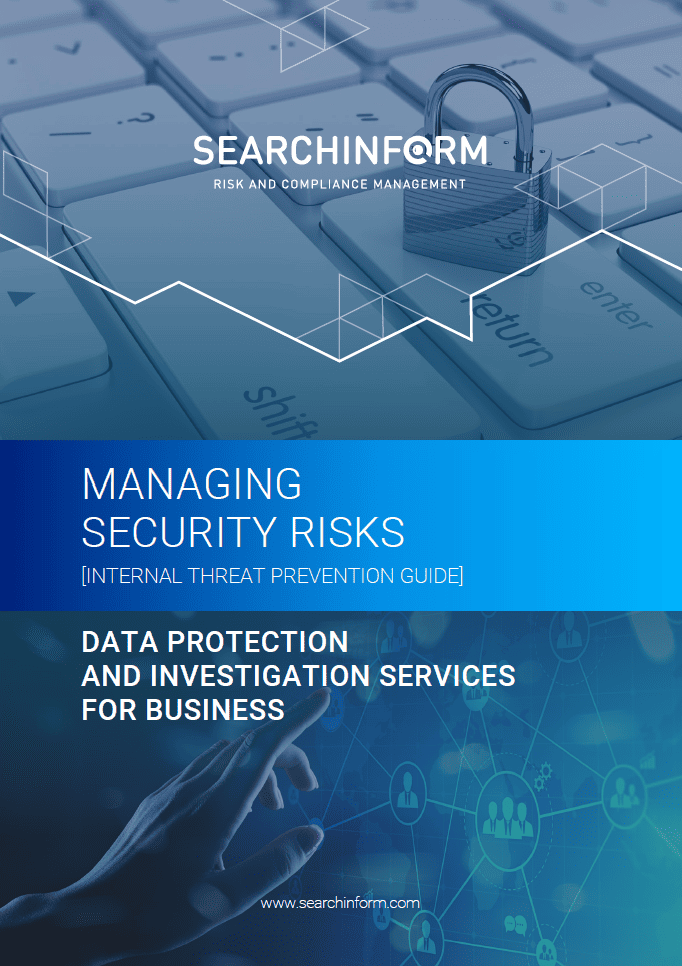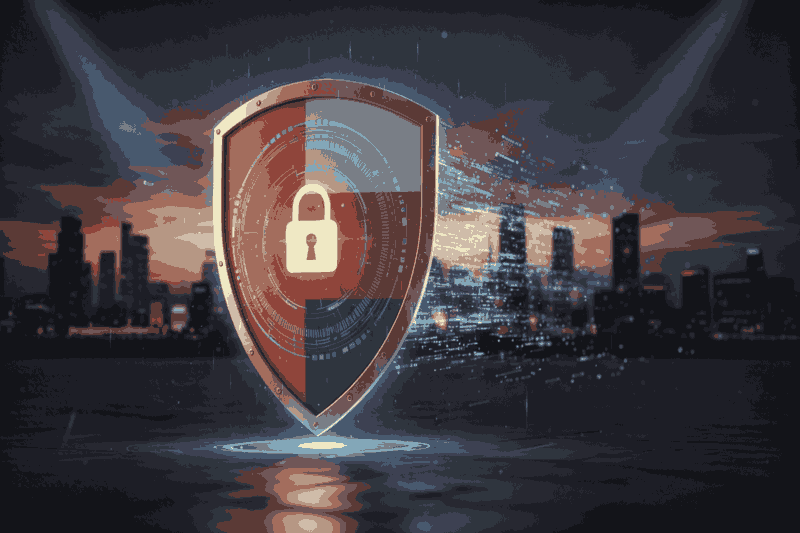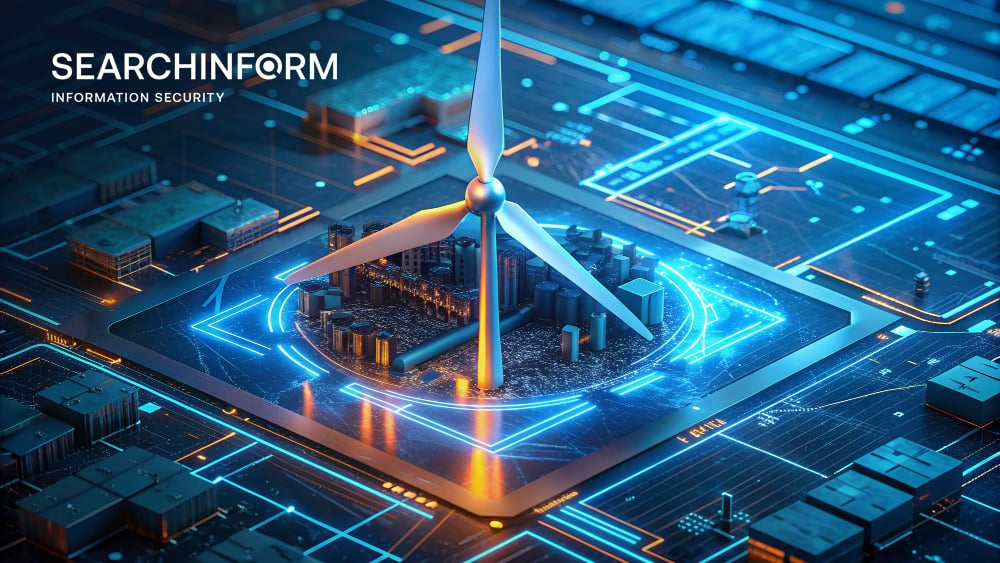Industrial Control Systems (ICS)
- What are Industrial Control Systems?
- Why are Industrial Control Systems Important?
- Components of Industrial Control Systems
- Types of Industrial Control Systems
- 1. Supervisory Control and Data Acquisition (SCADA) systems:
- Applications:
- 2. Distributed Control Systems (DCS):
- Applications:
- 3. Programmable Logic Controllers (PLCs):
- Applications:
- Benefits of Industrial Control Systems
- Applications of Industrial Control Systems
- Critical Infrastructure:
- Manufacturing:
- Transportation:
- Healthcare:
- Industrial Control Systems Security
- Common threats to Industrial Control Systems:
- Best practices for Industrial Control Systems security:
- The future of Industrial Control Systems
- Emerging trends in Industrial Control Systems:
- The impact of new technologies on Industrial Control Systems:
What are Industrial Control Systems?
Industrial Control Systems (ICS) are the silent heroes of the industrial world. They operate behind the scenes, quietly managing and automating complex processes in various industries, from power generation and water treatment to oil and gas production and manufacturing. Understanding how these intricate systems work is crucial for appreciating their immense role in our modern lives.
Definition: An industrial control system (ICS) is an umbrella term for electronic control systems and associated instrumentation used to monitor, analyze, and manage industrial processes. These systems typically combine hardware and software to control physical aspects of a process, like:
- Temperature in a chemical reactor
- Pressure in a pipeline
- Motor speed in a manufacturing line
- Flow rate of water in a treatment plant
Think of Industrial Control Systems as the brains and nerve center of modern industrial operations. They automate tasks, optimize processes, and improve efficiency and safety.
Why are Industrial Control Systems Important?
The importance of ICS security cannot be overstated. Given their critical role in infrastructure, they are increasingly targeted by cyberattacks. Robust security measures like access control, network segmentation, and vulnerability patching are essential to protect these systems from harm.
ICS are crucial for several reasons:
- Increased efficiency and productivity: Automation reduces human error and optimizes process control, leading to increased output and reduced waste.
- Improved safety: Continuous monitoring and control of hazardous processes minimize accidents and environmental risks.
- Enhanced reliability and uptime: ICS ensure consistent product quality and prevent disruptions to operations, leading to increased revenue and customer satisfaction.
- Reduced operational costs: Automation cuts down on labor costs and resource consumption, improving overall profitability.
- Data-driven decision making: ICS generate real-time data on process variables, enabling informed decision-making for continuous improvement.
Components of Industrial Control Systems
ICS typically involve the following components:
Sensors and actuators: These are the eyes and ears, and the hands and feet of an ICS.
- Sensors collect data about the physical process (e.g., temperature, pressure, flow) and send it to the controller.
- Actuators receive commands from the controller and manipulate physical elements (e.g., valves, pumps, motors) to influence the process.
- Programmable Logic Controllers (PLCs): Rugged and versatile, PLCs are widely used in industrial automation. They execute user-defined logic programs to control the process.
- Distributed Control Systems (DCS): Large-scale systems for complex processes, DCSs use a network of interconnected controllers for centralized monitoring and control.
- Supervisory Control and Data Acquisition (SCADA) systems: Used for geographically dispersed processes, SCADAs collect data from remote sites and provide centralized control and monitoring.
- Displays: Visualize process data, alarms, and trends, using graphs, charts, and mimic diagrams.
- Keypads and touchscreens: Provide input for commands, setpoints, and data manipulation.
- Alarms and notifications: Alert operators to abnormal conditions or potential problems.
- Ethernet: Widely used for high-speed data transfer within a facility.
- Fieldbus protocols: Designed for specific industrial applications, such as Profibus, Modbus, and Foundation Fieldbus.
- Wireless technologies: Increasingly used for remote monitoring and control, such as Wi-Fi and cellular networks.
Types of Industrial Control Systems
SCADA, DCS, and PLCs represent the core types of ICS, each with its own strengths and ideal applications. Understanding their differences is essential for selecting the right system for your specific industrial needs and ensuring efficient, reliable, and secure operation.
1. Supervisory Control and Data Acquisition (SCADA) systems:
Imagine a conductor overseeing a complex orchestra. SCADA systems play a similar role, monitoring and controlling geographically dispersed assets through a central hub. They excel at:
- Data Acquisition: Sensors feed real-time data on temperature, pressure, flow rates, etc., to the central unit.
- Remote Monitoring: Operators can visualize the entire process on Human-Machine Interfaces (HMIs), allowing for quick decision-making.
- Supervisory Control: Commands can be sent to actuators and other control devices to adjust settings and optimize processes.
Applications:
- Oil and gas pipelines: SCADA monitors the flow and pressure across vast distances, ensuring safe and efficient transportation.
- Power grids: SCADA systems coordinate the operation of power plants, substations, and transmission lines, maintaining stable electricity supply.
- Water treatment plants: SCADA monitors and controls water flow, chemical addition, and filtration processes for clean water delivery.
2. Distributed Control Systems (DCS):
Think of a team of highly skilled specialists working in concert. DCS distributes control intelligence across multiple interconnected controllers, offering:
- Real-time Process Control: Each controller independently manages specific segments of the process, reacting swiftly to changes.
- Scalability and Redundancy: Adding or removing controllers is easy, and if one controller fails, others can take over, ensuring uninterrupted operation.
- High Reliability and Accuracy: DCS systems are built for demanding industrial environments, providing precise control and minimizing downtime.
Applications:
- Chemical plants: DCS precisely controls temperature, pressure, and chemical reactions for safe and efficient production.
- Paper mills: DCS systems manage pulp consistency, drying temperatures, and machine speeds for smooth paper production.
- Nuclear power plants: DCS ensures precise control of reactor core temperature, coolant flow, and safety systems for reliable energy generation.

3. Programmable Logic Controllers (PLCs):
Consider PLCs as the workhorses of the ICS world. These compact, rugged computers directly control individual machines or processes with:
- Ladder Logic Programming: Easy-to-understand logic diagrams dictate the PLC's actions based on sensor inputs and desired outputs.
- Standardized Modules: Different modules for input/output (I/O), communication, and other functions can be plugged into the PLC, offering flexibility.
- Reliability and Cost-Effectiveness: PLCs are built for harsh environments and require minimal maintenance, making them economical for industrial automation.
Applications:
- Conveyor belts: PLCs control the speed and direction of conveyor belts in factories and warehouses.
- Traffic lights: PLCs manage traffic flow at intersections based on vehicle and pedestrian presence.
- Robotic arms: PLCs precisely control the movement and actions of robots in manufacturing and assembly lines.
Benefits of Industrial Control Systems
- Increased efficiency and productivity: ICS automates complex processes, reducing manual labor and errors. This leads to faster production times, higher output, and lower costs.
- Improved quality control: Sensors and feedback loops within ICS enable real-time monitoring and adjustments, ensuring consistent product quality and minimizing waste.
- Enhanced safety: ICS can implement safety interlocks and alarms, preventing accidents and protecting personnel and equipment.
- Reduced environmental impact: Optimized processes from ICS can minimize energy consumption and emissions, contributing to environmental sustainability.
- Improved data-driven decision making: ICS collects and analyzes operational data, providing valuable insights for optimizing processes and making informed business decisions.
Applications of Industrial Control Systems
Critical Infrastructure:
- Power generation and transmission: ICS controls power plants, dams, and electrical grids for reliable and efficient electricity supply.
- Water and wastewater treatment: ICS manages pumps, valves, and filtration systems for clean water distribution and safe wastewater disposal.
- Oil and gas pipelines: ICS monitors and controls pipelines for safe and efficient transportation of oil and gas.
- Traffic management systems: ICS manages traffic lights, toll booths, and other infrastructure for efficient and safe transportation.
Its discovery entails:
Manufacturing:
- Process control: ICS automates and optimizes production processes in industries like chemicals, pharmaceuticals, and food processing.
- Robotics and automation: ICS controls robots and automated machines for precise and efficient manufacturing.
- Quality control: ICS monitors and tests products during production to ensure consistent quality.
- Inventory management: ICS tracks and manages inventory levels for optimal production and supply chain efficiency.
Transportation:
- Aviation: ICS manages air traffic control systems, flight navigation, and airport operations for safe and efficient air travel.
- Rail transportation: ICS controls train speed, signaling, and safety systems for efficient and reliable railway operations.
- Maritime transportation: ICS manages ship navigation, collision avoidance systems, and cargo handling for safe and efficient maritime operations.
- Automotive industry: ICS controls in-vehicle systems like engine management, airbags, and driver assistance features for safer and more efficient vehicles.
Healthcare:
- Medical equipment: ICS controls diagnostic equipment, surgical robots, and patient monitoring systems for precise and efficient medical care.
- Hospital automation: ICS manages building systems like ventilation, temperature control, and energy consumption for better patient comfort and resource efficiency.
- Drug discovery and development: ICS automates laboratory equipment and data analysis for efficient drug research and development.
- Personalized medicine: ICS enables customized patient treatments by analyzing individual data and controlling medical devices accordingly.
Industrial Control Systems Security
Common threats to Industrial Control Systems:
- Cyberattacks: Hackers can target ICS to disrupt operations, steal sensitive data, or cause physical damage.
- Malware: Malicious software can infect ICS devices and compromise their functionality.
- Insider threats: Disgruntled employees or contractors can misuse their access to cause harm.
- Physical attacks: Damage to equipment or infrastructure can disrupt ICS operations.
Best practices for Industrial Control Systems security:
- Segment networks: Separate ICS networks from other IT systems to limit attack vectors.
- Implement strong authentication and access control: Ensure only authorized personnel have access to critical systems.
- Update software regularly: Patch vulnerabilities promptly to prevent exploitation.
- Monitor and log activity: Track system activity and investigate suspicious behavior.
- Conduct regular security assessments: Identify and address vulnerabilities before they can be exploited.
The future of Industrial Control Systems
Emerging trends in Industrial Control Systems:
- Industrial Internet of Things (IIoT): Connecting ICS devices to the internet for increased data analysis and remote control.
- Artificial intelligence (AI): AI-powered tools for anomaly detection, predictive maintenance, and optimized process control.
- Edge computing: Performing computing tasks at the device level for faster response times and improved security.
- Cloud computing: Utilizing cloud platforms for data storage, analysis, and remote management of ICS.
The impact of new technologies on Industrial Control Systems:
- Increased complexity: New technologies bring new security challenges as systems become more interconnected and dependent on software.
- Enhanced security capabilities: New technologies like AI and blockchain can also offer improved security solutions for ICS.
- Workforce challenges: New skills and expertise will be needed to manage and secure increasingly complex ICS systems.
Remember, ICS security is crucial for protecting critical infrastructure, ensuring public safety, and safeguarding economic stability. By understanding the benefits, applications, and security challenges of ICS, we can leverage its potential while mitigating its risks for a safer and more efficient future.
Full-featured software with no restrictions
on users or functionality
Company news
SearchInform uses four types of cookies as described below. You can decide which categories of cookies you wish to accept to improve your experience on our website. To learn more about the cookies we use on our site, please read our Cookie Policy.
Necessary Cookies
Always active. These cookies are essential to our website working effectively.
Cookies does not collect personal information. You can disable the cookie files
record
on the Internet Settings tab in your browser.
Functional Cookies
These cookies allow SearchInform to provide enhanced functionality and personalization, such as remembering the language you choose to interact with the website.
Performance Cookies
These cookies enable SearchInform to understand what information is the most valuable to you, so we can improve our services and website.
Third-party Cookies
These cookies are created by other resources to allow our website to embed content from other websites, for example, images, ads, and text.
Please enable Functional Cookies
You have disabled the Functional Cookies.
To complete the form and get in touch with us, you need to enable Functional Cookies.
Otherwise the form cannot be sent to us.

Subscribe to our newsletter and receive a bright and useful tutorial Explaining Information Security in 4 steps!

Subscribe to our newsletter and receive case studies in comics!







